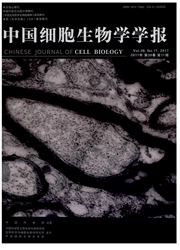

 中文摘要:
中文摘要:
神经系统遗传性疾病发病率居各系统遗传病之首。但是,对多数这类疾病还没有十分有效的治疗方法,其发病的分子机制也不完全清楚。近年来,运用体细胞重编程技术建立的疾病特异性诱导多能干细胞模型有助于揭示神经系统遗传性疾病的发病机理,并推动早期诊断及临床治疗的发展。目前,疾病患者特异的iPS~.m胞已逐渐应用于神经系统遗传性疾病的发病机理和药物筛选的研究,并有望应用于,临床治疗。该文重点综述了诱导多能干细胞应用于神经系统遗传性疾病研究的最新进展,概述了该领域目前存在的问题和面,临的挑战。
 英文摘要:
英文摘要:
Abstract The morbidity of neural hereditary diseases ranks first over all hereditary diseases. But till now, there is no effective clinical therapy for these diseases, and their pathogenesis remains unclear. In recent years, patient-specific induced pluripotent stem cells (iPSCs) derived from somatic cells have been gradually applied as in vitro models for the study of the pathogenesis of neural hereditary diseases, drug screening as well as clinical applications. Here we review the application of iPSCs in studying neural hereditary diseases according to the latest research data, and summarize the problems as well as challenges in this field. Establishing of patient-specific iPSC lines could provide promising future for understanding the underlying pathogenesis of diseases and promote the development of efficient treatment strategies in the clinical settings.
 同期刊论文项目
同期刊论文项目
 同项目期刊论文
同项目期刊论文
 期刊信息
期刊信息
